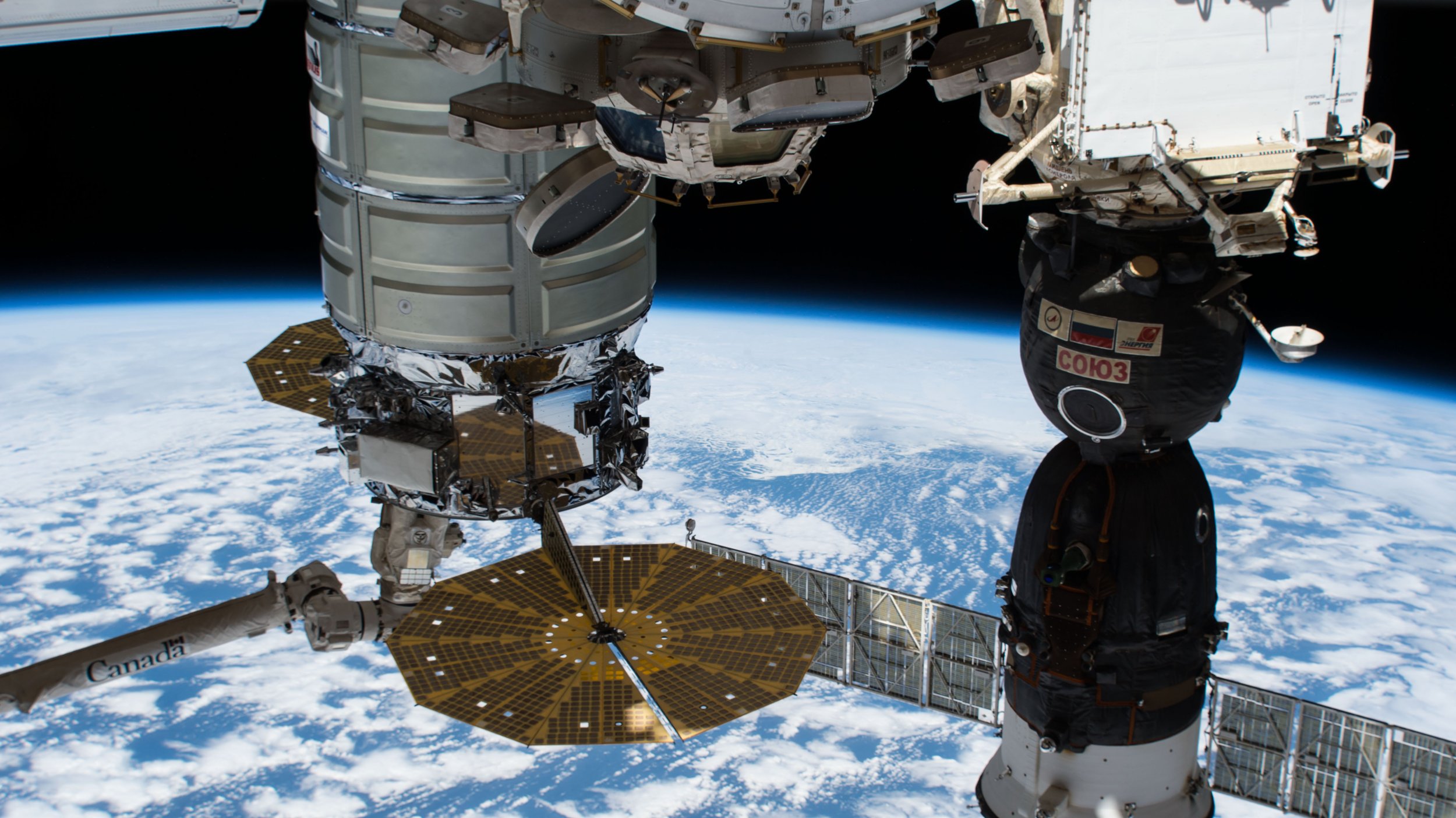
An astronaut who was commander on the International Space Station (ISS) for six months before he returned to Earth in December has dismissed claims that a hole in an attached module was created deliberately by crew members, suggesting that the fault originated in the manufacturing process.
NASA has also blamed the leak—which was discovered in August inside the Russian-made Soyuz capsule, a spacecraft which transports astronauts to and from the ISS—on a manufacturing defect. However, some commentators in the Russian media have suggested that the hole could have been created deliberately by U.S. astronauts in an act of sabotage.
Read more: NASA might be selling the International Space Station to private companies
The ISS is jointly operated by NASA as well as the space agencies of Russia, Japan, Europe and Canada.
"It was pretty clear in my opinion [that it was] not the crew springing a leak," German astronaut Alexander Gerst told BBC Radio 4's Today program on Tuesday. "That was just a few misunderstandings that they had out there. It's still pretty obvious that it was a man-made hole in the hull. In that case, the hole was there and it was just covered by a little glue, so the question is how did it get there?"
Gerst said the crew remained calm when they heard news about the leak from mission control, after host Martha Kearney suggested it must have been a frightening moment.
"When we woke up, mission control told us, 'Hey we were tracking a small leak.' They were basically telling us, 'We're seeing this and it's nothing to worry about yet' because we would have enough air on board for several days before it got critical. They nevertheless said we should check out where this hole is."
The hole was eventually repaired by the astronauts and cosmonauts on board, however, Gerst said it could have been extremely dangerous if circumstances had been slightly different.
"Even though the hole was small in that case it could have been much more severe for us," he said. "As an astronaut you think 'Well, what would have happened if it broke loose a little bit earlier—when we were travelling to the space station, when you only have a very small volume of air in that spacecraft?'," he said.
Gerst also talked about the unpleasant experience of re-entering the Earth's atmosphere and climbing out of the Soyuz module after living in space for months.
"When you open the capsule, a very exhausting part of the journey is climbing out of that capsule," Gerst said. "I immediately noticed the fresh, clear, crisp air and the scent of Earth, like ground soil. But still you have sensations like you smell the outside of your spacecraft, which is completely charred and full of soot from the re-entry."
"At the end of this journey, we've had a really long day, a really exhausting day, so we're drenched in sweat in a heavy space suit and everything feels very heavy. Usually people think they're stuck, but in reality its gravity that pushes us down. The very first sensations coming back home are not all that pleasant but it's more like a mixture of different things."
During his time on the ISS, Gerst was the first astronaut to work alongside an artificial intelligence assistant robot known as the Crew Interactive Mobile Companion, or CIMON. When Kearney asked if astronauts could one day be replaced by robots, Gerst was skeptical.
"I don't see that danger at all because we humans are explorers, but at the same time exploration is a synergy between humans and robots. None can exist without the other and, in fact, you could call the International Space Station a human robotic machine in that I would say maybe 90 percent of what we do up there is robotic. That doesn't replace us in the end; that actually frees our capabilities of doing more of the things that we humans are good at, which is more the inspirational things."
Finally, Gerst discussed how viewing our planet from space can have a powerful effect on how you view the Earth.
"One of the many important things why we fly to space, maybe the most important thing, is looking down our planet to get a perspective of our home from the outside," he said. "If you look from the outside you realise there's a whole lot of black around it and that planet does not look very sturdy. In fact, it's clear that it's very fragile and in terms of that we could destroy the conditions that allow us humans to live comfortably. That is something we often forget."
Uncommon Knowledge
Newsweek is committed to challenging conventional wisdom and finding connections in the search for common ground.
Newsweek is committed to challenging conventional wisdom and finding connections in the search for common ground.
About the writer
Aristos is a Newsweek science reporter with the London, U.K., bureau. He reports on science and health topics, including; animal, ... Read more
To read how Newsweek uses AI as a newsroom tool, Click here.








